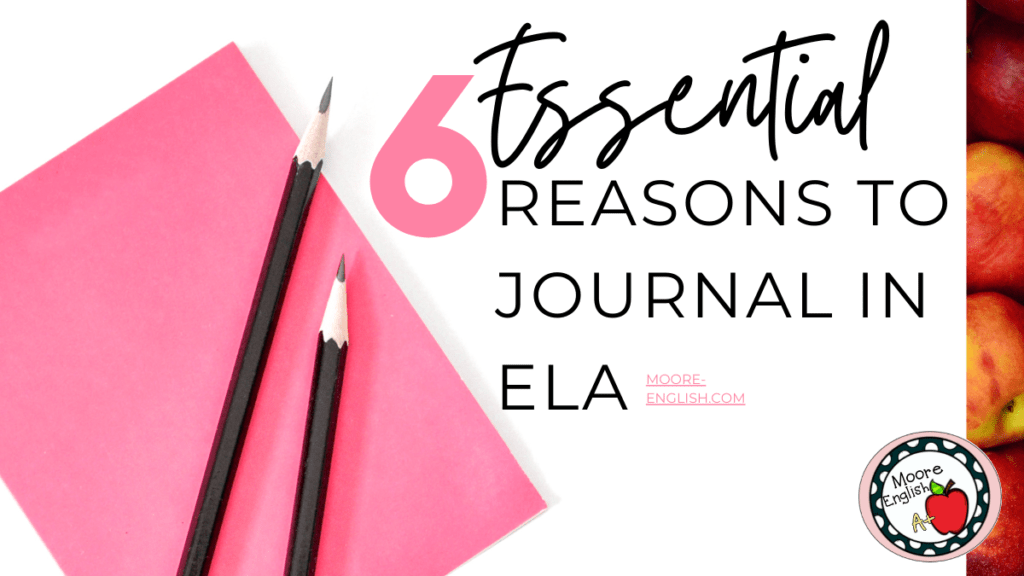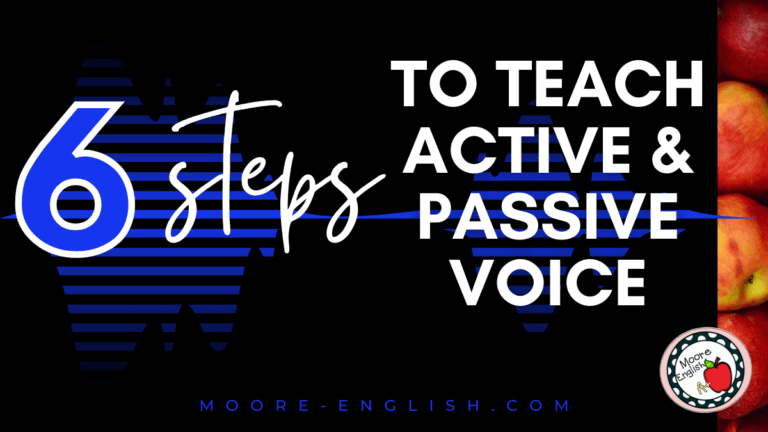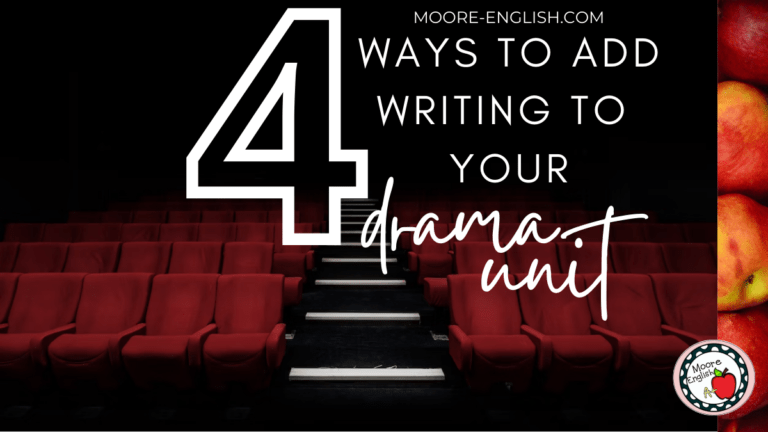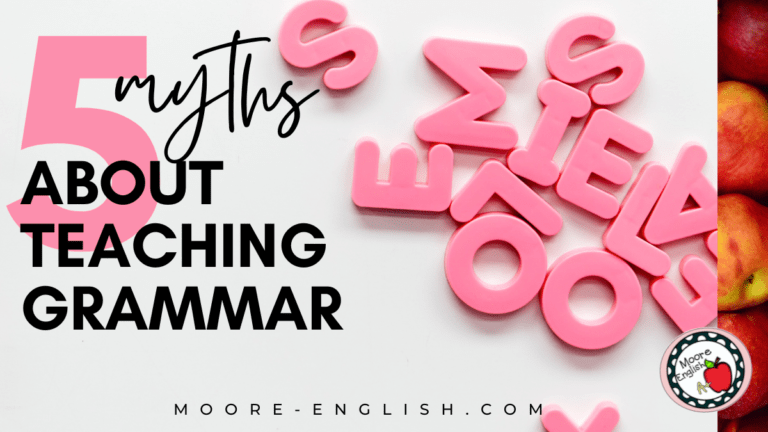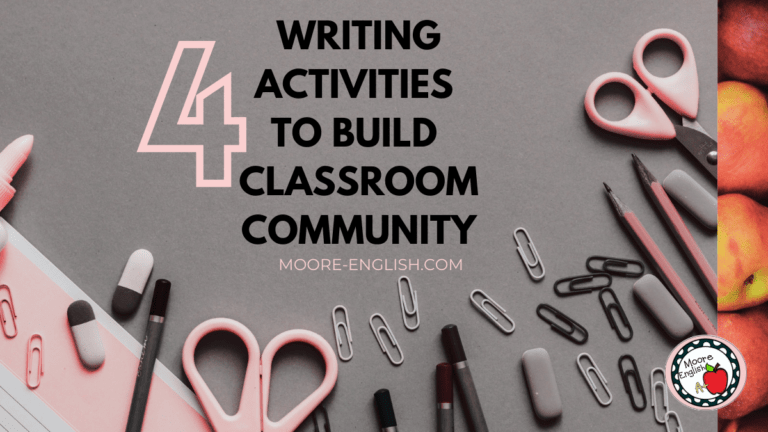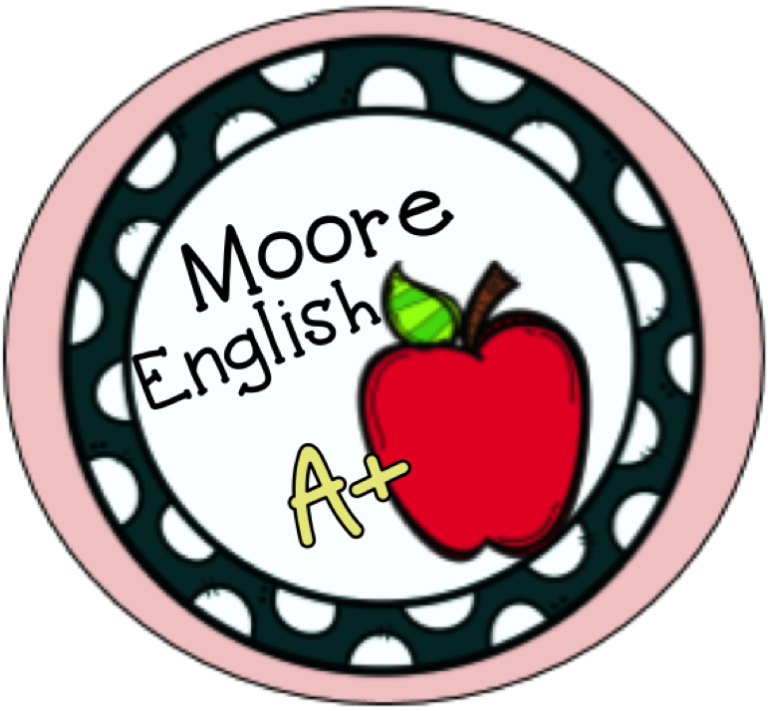Every year for my birthday, my aunt gives me a new, beautiful journal. I keep these kind gifts on a shelf, and they look so warm and homey. However, if you were to open them, you’d see a few scribbles on the first page and then blank pages to the end. Despite my aunt’s best efforts, I have never been able to keep a personal journal or diary. This is no longer a source of great guilt.
However, for a long time, this experience did prevent me from using journals in my classroom. As with most things, I should learn to never say never because journals can be great tools in the ELA classroom!
This post this post may contain affiliate links. Please read the Terms of Use.
Journals Can Build Community
A few years ago, I had the opportunity to teach our elective World Literature class. When I inherited this class, it had no bell work, and I am big believer in the power of bell work. Similarly, the curriculum called for two significant formal presentations (one at midterm and one near the end of the year). However, the curriculum didn’t provide many opportunities to practice the speaking and listening skills needed for making these presentations successful.
With these problems in mind, I developed a bell work system that alternated skill-focused journals with independent reading journals. With this system, students wrote every day but not always with the same focus. In order to build in speaking and listening, I asked students to share one journal each week. With a focus on skills and independent reading, most journals were not personal. However, giving students some forewarning gave them a chance to plan which journal to offer.
As a result of this system, students developed their speaking and listening skills. What I didn’t expect was that this sharing would also lead to a strong sense of community. Over the course of the semester, students became more comfortable with one another. They realized that their classmates were accepting of their quirks, concerns, and vulnerabilities. Slowly, students began to share a little more of themselves in their journals. More than anything, this showed me how shared writing can be an opportunity to build classroom community.
Journals Can Be Reflective
Similarly, journals can also be an opportunity for metacognition. Not every journal prompt has to be focused on content. Some journal prompts can be focused inward to help students reflect on their growth and progress. Here are some prompts that can help students reflect on their progress:
- What is an unexpected benefit of this course or activity?
- What is something you wish you could tell your past self?
- How have you grown and evolved since the start of the class?
- What is the most valuable thing you have learned in this class? Why?
- What is the most valuable thing you have learned about yourself? Why?
- If you had to give advice to a future student, what advice would you share? Why?
- Think back to the beginning of the course or year. How have you grown in this time?
- What goals do you have for yourself as a reader and writer? What is your plan for growth?
With this in mind, journaling can be a great strategy for back-to-school and for wrapping up the end of the year.
Journal as a Reading Strategy
In that fateful World Literature class, I also learned that journaling can be a powerful reading strategy. When crafting journal prompts, teachers can focus on a variety of skills and concepts.
Firstly, journaling is a great way to frame or lead in to a classroom discussion. Prior to discussion, students can reflect on an essential question or topic. This helps them enter a classroom discussion “warm” and ready to share.
Similarly, journals help students connect to their reading. When I first started teaching, I was required to teach Beowulf. I had no idea how to make this text relevant to students. However, journaling helped students connect with a character that may seem too distant.
Additionally, journals can be a good way for students to connect with diverse characters. In fact, sometimes students can practice analyzing point of view and characterization by writing a journal from the perspective of a character. I love to have students try this with Things Fall Apart and The Great Gatsby.
For some novels, historical context can be tricky. For example, the dual contexts of The Crucible make it a challenge for some students. Journal prompts focused on setting, historical conflict, and literary movements can be powerful. In particular, I love to ask students how a text would be different if it had been written in a different time and place.
All year long, my students return to main idea and author’s purpose. We circle back to these topics again and again. For this reason, I often focus journal prompts on these topics. In a complex text like Pride and Prejudice, journals often help students sort out their thoughts about an author’s purpose or the text’s theme.
Journal as a Writing Strategy
As a student, I often struggled to get started with writing. Once I got going, I could keep going. As a teacher, I often see my students have the same problem. Using journals frequently in the classroom helps students get in the habit of just starting somewhere. This habit helps students across all their contents and when they’re approaching any kind of writing situation.
Similarly, journaling is a great brainstorming tool. As students approach a longer writing task, a quick journal beforehand can be a great way to help students get their thoughts down on paper. From this point, students can then begin to shape their thoughts and refine them.
More Journal Prompts
I have a variety of journal prompts ready to go, and I’d love to share them with you! Check out these journal prompts for my favorite novels and units!
- Beowulf
- Macbeth
- The Crucible
- The Odyssey
- Julius Caesar
- Things Fall Apart
- The Great Gatsby
- Romeo and Juliet
- Pride and Prejudice
- To Kill a Mockingbird
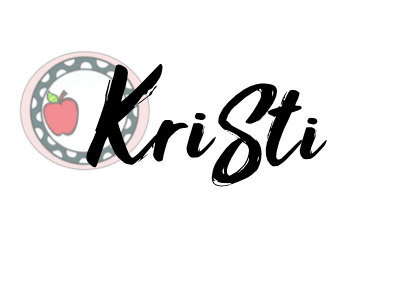
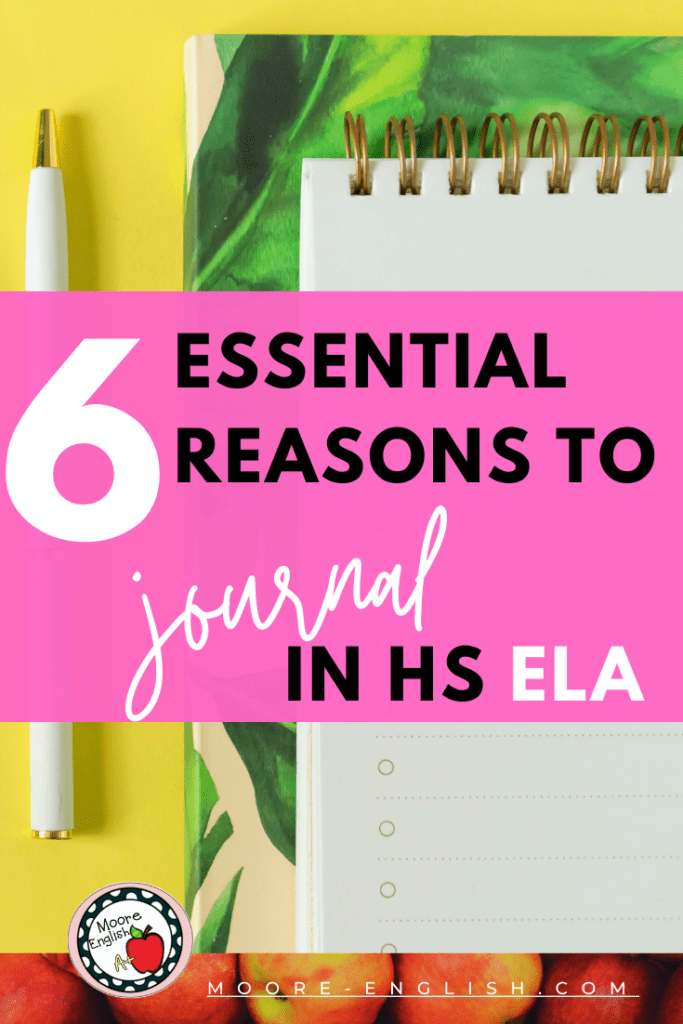
Photo Credits: Pixistock, Ivory Mix, Styled Stock Society, and Molly Brett Photography

